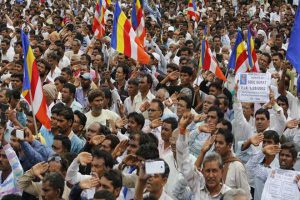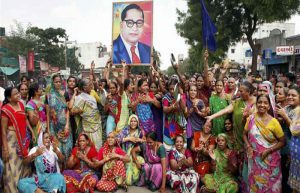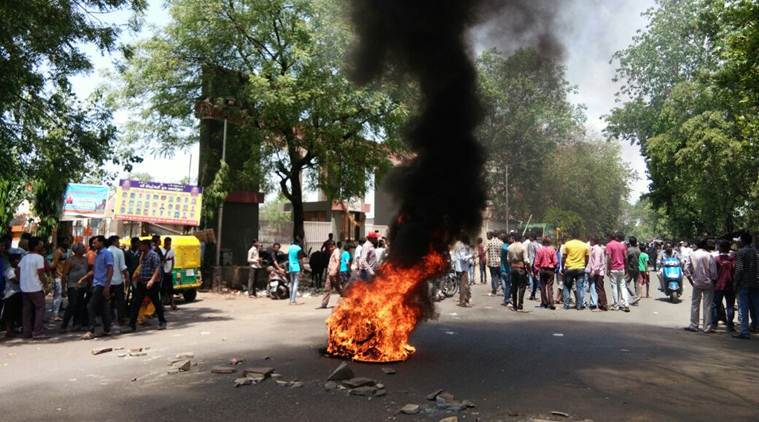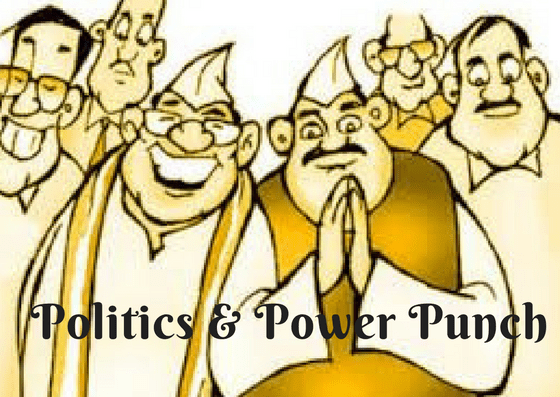Reading Time: 4 minutes
The last few days have been very traumatic for India. TV screens have been filled with images of violent mobs on the rampage, scenes of wanton destruction of public and private property, and accounts of terrified citizens stranded in the midst of violence. The provocation was a recent judgement by a two-judge bench of the Supreme Court against the accused in cases registered under the SC/ST (Prevention of Atrocities) Act, 1989, point out Navodita, our Associate Editor, in the weekly column, exclusively for Different Truths.
The recent incidents of violence by Dalits across the country goes on to indicate how important it is to have debates and discussions about the prevalent caste system in India and view it in the proper light.
The last few days have been very traumatic for India. TV screens have been filled with images of violent mobs on the rampage, scenes of wanton destruction of public and private property, and accounts of terrified citizens stranded in the midst of violence. The provocation was a recent judgement by a two-judge bench of the Supreme Court against the accused in cases registered under the SC/ST (Prevention of Atrocities) Act, 1989.
Predictably, parties of all hues have sensed an opportunity in this violent expression of public sentiment 

The judgement has been criticised on various grounds. The legal argument is of judicial overreach. The Court is accused of creating provisions in the criminal law that go beyond the letter and spirit of the law and might even subvert the original intention of the law. Others claim that there is no data to show that Atrocities Act has been seriously abused and, therefore, the court is tilting at windmills. It is also argued that despite the enactment of this law, there has been no significant improvement in the discrimination faced by Dalits and Adivasis. Therefore, any dilution of its provisions represents a betrayal of our constitutional commitment to ending caste discrimination. Faced with public anger, the government has filed a review petition, which is pending before the Court. Whatever its final outcome, this case raises important questions that deserve to be discussed and debated in a reasonable manner.
As the nation continues to debate the matter, it is noteworthy that the public anger by Dalits may cost the BJP dearly. This public outcry by Dalits and various tribes and communities is indicative of a vibrant democracy. The BSP and the Congress might use this to raise their voice against the BJP government in these states. It is interesting to note that in Uttar Pradesh Samajwadi Party, JD (U) in Bihar and Janata Dal (Secular) in Karnataka have ceased to comment on the matter. The BJP is leaving no stone unturned to prove that they will take care of the Dalits and various tribes and that their rights are well protected. It’s not necessary that the Congress or the BSP will gain anything out of this violence. The bitter truth, however, is that the Hindus care less about the rights of their Dalit counterparts. The BJP supports the Scheduled Tribes in some areas and even represents these at the state and national level. They want that these tribes should be viewed championing the cause of Dalits. This has its own advantages and disadvantages. The BJP may face a defeat in this as all Dalit equations do not fall under one single roof. Even the Congress and other parties may have to face a defeat on this front.


In 2019, this may prove to have an adverse impact on the BJP vote although later the trend may reverse. In states, the Congress is likely to win the Dalit vote as there are a lot of areas where Mayawati’s BSP does not exist or does not contest. In Uttar Pradesh of course, Mayawati will benefit the most from this Dalit outrage at the SC verdict. The BJP won’t be left out of this outrage as Dalits are angry about the whole fiasco around cow vigilantism and beef and the resultant violence against Dalits. The BJP will have to pay for its ‘Hindutva’ politics. On the other hand, it is also true that this public outrage is not going to do anything to empower the tribes and Dalits in remote villages.
There is a need of the hour that there should be a ‘democratic revolution’ to stop violence against Dalits. At the moment, few upper and medium-class Hindu castes, upper-caste Muslims, Sikh, Christians, Buddhists, and Jains are obstructing such development of Dalits. It is important for the sake of democracy to seek such a change. It is for this reason that caste will continue to play an important role in politics.
©Navodita Pande
Photos from the Internet
#DemocraticRevolution #Dalists #Caste #ProtestAgainstViolence #IndianPolitics #PoliticsAndPowerPunch #DifferentTruths

















